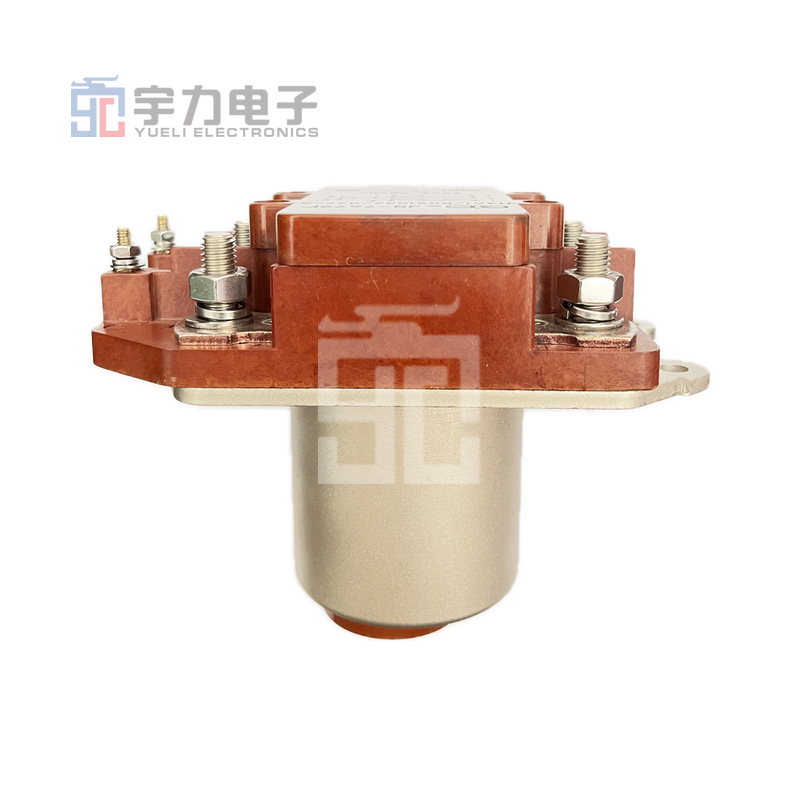Understanding DC Contactors: Essential Components in Electrical Systems
2025-07-09

DC contactors are electromechanical switches designed to control the flow of direct current in electrical circuits. They are primarily used in industrial, commercial, and residential applications to manage a wide range of electrical loads. The primary function of a DC contactor is to establish or interrupt the electrical connection, enabling or disabling the operation of connected devices such as motors, lights, and heating systems.
One of the main advantages of using DC contactors is their ability to handle high currents and voltages. Unlike standard relays, which can be limited in their capacity, DC contactors are specifically designed to manage the demands of high-power applications. This makes them ideal for use in environments where reliability and performance are critical, such as manufacturing plants, renewable energy systems, and electric vehicles.
DC contactors consist of several key components, including the coil, contacts, and enclosure. The coil is an electromagnetic component that, when energized, creates a magnetic field to pull the contacts together, allowing current to flow. The contacts are the conductive parts that open and close the electrical circuit, while the enclosure protects these components from environmental factors such as dust, moisture, and physical damage.
When selecting a DC contactor, it is essential to consider factors such as voltage rating, current rating, and the specific application requirements. For instance, a contactor used in a motor control application will need to be rated for the motor's starting and running currents, ensuring it can handle the electrical load without overheating or failing.
In addition to their robust performance, DC contactors offer several operational benefits. They can be controlled remotely, allowing for automation in various applications. Additionally, they can be integrated with control systems for enhanced functionality, such as overload protection and fault detection, which are critical for maintaining the safety and efficiency of electrical systems.
In summary, DC contactors play a pivotal role in controlling direct current in numerous electrical applications. Their ability to manage high currents, combined with their versatility and integration options, makes them an indispensable component in modern electrical systems. Whether you are designing a complex industrial setup or a simple residential installation, understanding the principles and advantages of DC contactors will enable you to make informed decisions and enhance the performance of your electrical systems.
One of the main advantages of using DC contactors is their ability to handle high currents and voltages. Unlike standard relays, which can be limited in their capacity, DC contactors are specifically designed to manage the demands of high-power applications. This makes them ideal for use in environments where reliability and performance are critical, such as manufacturing plants, renewable energy systems, and electric vehicles.
DC contactors consist of several key components, including the coil, contacts, and enclosure. The coil is an electromagnetic component that, when energized, creates a magnetic field to pull the contacts together, allowing current to flow. The contacts are the conductive parts that open and close the electrical circuit, while the enclosure protects these components from environmental factors such as dust, moisture, and physical damage.
When selecting a DC contactor, it is essential to consider factors such as voltage rating, current rating, and the specific application requirements. For instance, a contactor used in a motor control application will need to be rated for the motor's starting and running currents, ensuring it can handle the electrical load without overheating or failing.
In addition to their robust performance, DC contactors offer several operational benefits. They can be controlled remotely, allowing for automation in various applications. Additionally, they can be integrated with control systems for enhanced functionality, such as overload protection and fault detection, which are critical for maintaining the safety and efficiency of electrical systems.
In summary, DC contactors play a pivotal role in controlling direct current in numerous electrical applications. Their ability to manage high currents, combined with their versatility and integration options, makes them an indispensable component in modern electrical systems. Whether you are designing a complex industrial setup or a simple residential installation, understanding the principles and advantages of DC contactors will enable you to make informed decisions and enhance the performance of your electrical systems.


